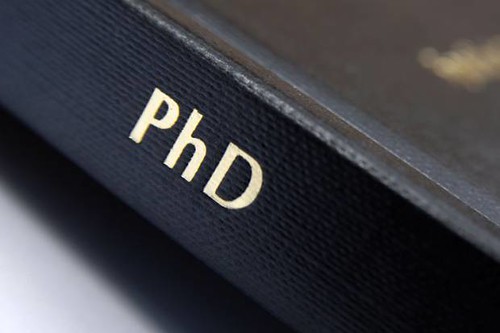Last year, my first Mexican PhD student graduated from our PhD programme in Public Policies. While I had graduated PhD students at other universities, Rafa was my first Mexican doctoral student and therefore, I was (and obviously continue to be) very invested in his success. I spent a week working with him and preparing him to defend his PhD dissertation.
One of the problems doctoral students face, and I recognise this as something that happened to me, was that towards the end of the project, they’re all ready to throw in the towel, exhausted and with no interest whatsoever in their dissertation anymore. I remember I hated mine. After all, I was already interested in, and conducting research in other areas of scholarship, very very different to anything I had studied for my doctoral dissertation. I already had conducted and completed a different project. However, I needed to finish my PhD thesis and thus I had to regain focus on a topic that I thought I hated already and was no longer interested in.
I believe the intent is to tell the PhD student "you're tired of the thesis because you're so close to completion, missing forest for trees" https://t.co/yEwkTNzpfF
— Dr Raul Pacheco-Vega (@raulpacheco) January 27, 2018
I also attended a PhD defense yesterday, which is what prompted my Twitter thread – I think it’s important that every PhD advisor teach their students about these particular issues:
- Contribution (theoretical or empirical) to the literature. This is particularly important, and something that students should be able to state within a 90 seconds pitch. A doctoral dissertation can have empirical, theoretical or both types of contributions.
- Position of the PhD dissertation within contemporary and classical debates. This is particularly important as it allows the student to demonstrate how they contribute (by extending X author’s scholarship, by offering a new dataset, by creating a different method to analyse a particular phenomenon, by exploring a new idea using innovative methods, etc.
- Methodological tools, including (but not limited to) which methods they used in their dissertation/thesis papers, and which ones they didn’t, but could have if they had had the time, or access to data, etc.
- Individual contributions of each paper (if it’s a 3-4 papers’ thesis), as well as the overall theoretical or empirical thread that makes these individual papers’ a cohesive, clear and coherent, cogent argument.
- Limitations of the research, potential future research (including individual’s research plans) and how the thesis positions the student within the global theoretical debates and/or how it contributes empirically to our better understanding of phenomena we would not have been able to analyse better were it not for the student’s PhD dissertation.
PhD students: you should, before defending, be able to 1) clearly state your contribution to the literature (theoretical or empirical).
— Dr Raul Pacheco-Vega (@raulpacheco) January 26, 2018
You can read my entire thread (and responses) by clicking on the tweet above.
If you liked this blog post, you may also be interested in my Resources for Graduate Students page, and on my reading notes of books I’ve read on how to do a doctoral degree.


0 Responses
Stay in touch with the conversation, subscribe to the RSS feed for comments on this post.